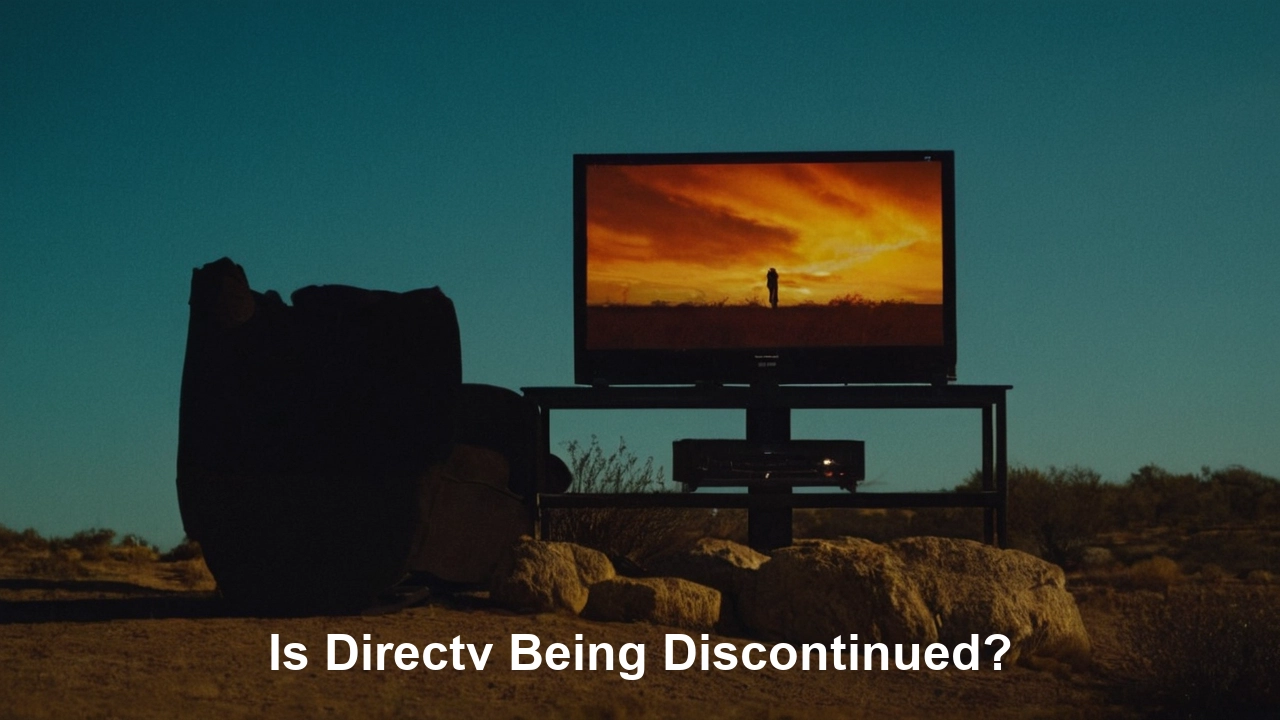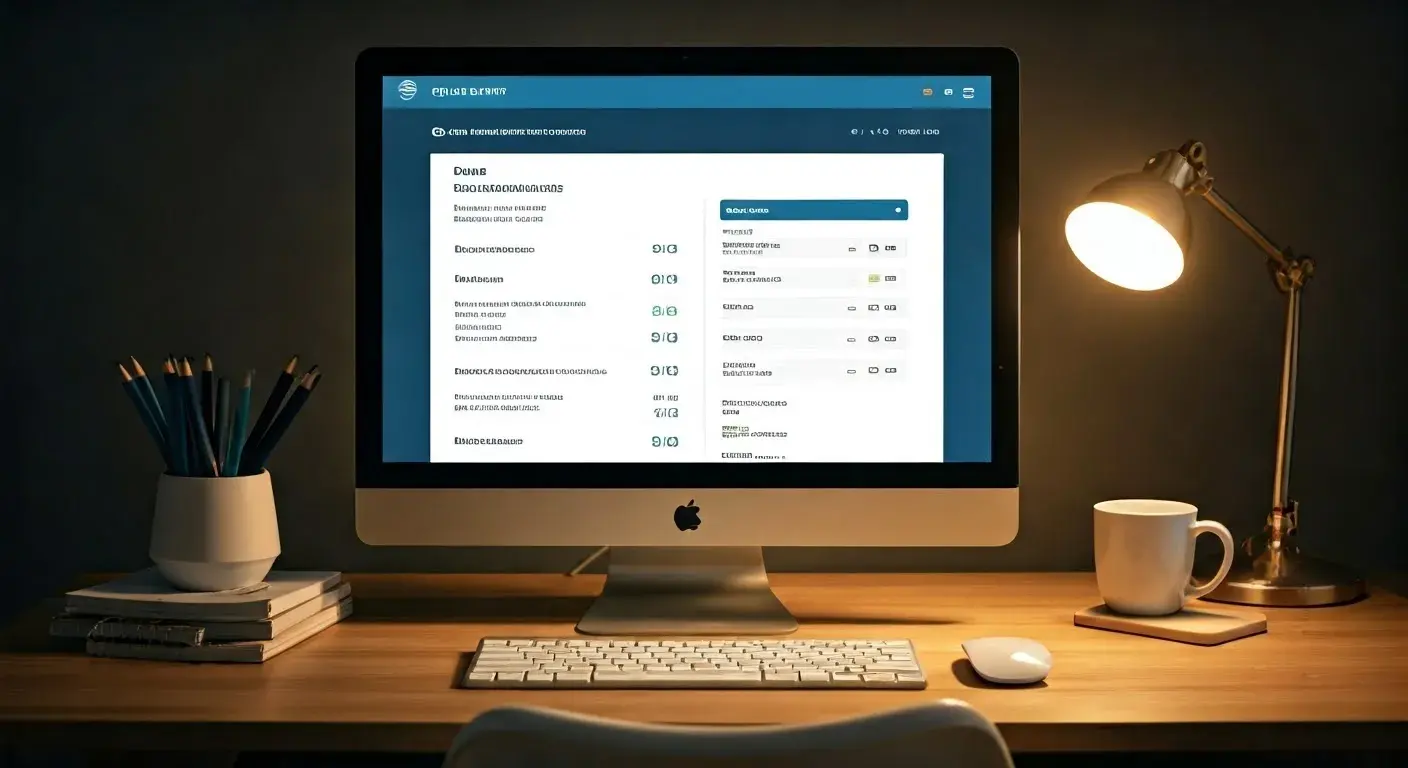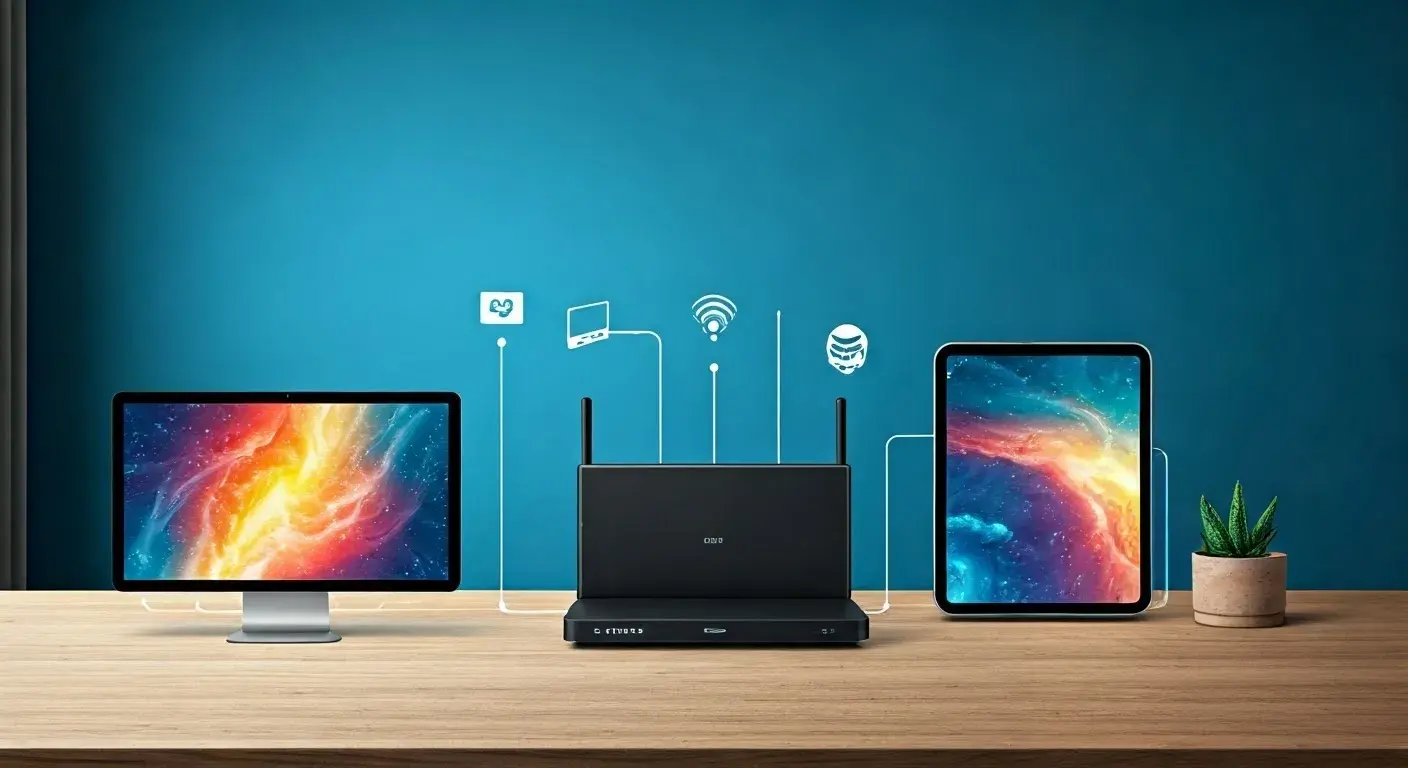Is DirecTV being discontinued?

DirecTV is not being discontinued. While the satellite TV landscape is evolving with streaming dominance, DirecTV continues to operate and adapt. This article explores its current status in 2025, its market position, and what the future holds for this established provider amidst fierce competition.
Is DirecTV Being Discontinued? The Definitive 2025 Outlook
The question "Is DirecTV being discontinued?" has been circulating for years, fueled by the relentless rise of streaming services and the perceived decline of traditional cable and satellite television. However, as of 2025, the answer is a definitive **no**. DirecTV is not being discontinued. While the company has undergone significant transformations and faces immense pressure from competitors like Netflix, Hulu, Amazon Prime Video, and YouTube TV, it remains a substantial player in the pay-TV market. Its continued existence and operational status are a testament to its strategic adjustments and the persistent demand for certain types of content delivery. This article aims to provide a comprehensive overview of DirecTV's current standing in 2025, dissecting the factors influencing its market position, its ongoing strategies, and what consumers can expect from the satellite giant in the coming years. We will delve into the evolving media consumption habits, analyze DirecTV's competitive advantages and disadvantages, and explore its future trajectory in a rapidly changing entertainment landscape. Understanding the nuances of the pay-TV industry in 2025 is crucial to appreciating why DirecTV, despite the challenges, is still very much in business.
Understanding the DirecTV Ecosystem
To grasp DirecTV's current situation, it's essential to understand its operational model and its place within the broader telecommunications and media industry. DirecTV, originally a pioneer in satellite television, has a long history of providing bundled entertainment packages to millions of households across the United States. Its core offering has traditionally been live television channels, delivered via a satellite dish installed at the subscriber's home. This model offered advantages such as broad coverage, even in rural areas where cable infrastructure might be lacking, and a consistent viewing experience unaffected by local internet speeds. However, the company's structure and ownership have also evolved. In 2021, AT&T spun off a majority stake in DirecTV, forming a new, independent entity where AT&T retained a minority stake. This move was seen as a strategic pivot, allowing DirecTV to operate with more agility and focus on its core business, separate from AT&T's broader telecommunications ambitions.
DirecTV Satellite Service
The traditional DirecTV satellite service remains its flagship product. It offers a vast array of channels, including premium movie networks, sports packages (like NFL Sunday Ticket, which has historically been a major draw), and local channels. The reliability of satellite delivery, especially for live events, is a key selling point. However, it requires a physical installation and is susceptible to weather-related disruptions, although modern technology has significantly mitigated these issues. In 2025, the satellite service continues to serve a substantial, albeit shrinking, customer base.
DirecTV Stream (Formerly AT&T TV)
Recognizing the shift towards internet-based delivery, DirecTV has heavily invested in its streaming service, now known as DirecTV Stream. This platform offers a similar channel lineup to the satellite service but is delivered over the internet. It provides flexibility, allowing users to watch on various devices (smart TVs, streaming sticks, mobile devices) and eliminates the need for a satellite dish. DirecTV Stream is crucial for DirecTV's strategy to retain customers who are migrating away from traditional satellite and cable. It competes directly with other internet-based TV providers and is a key indicator of DirecTV's adaptation to the modern media landscape. By offering both satellite and streaming options, DirecTV aims to cater to a broader spectrum of consumer preferences and technological adoption rates.
The Customer Base in 2025
Despite the overall cord-cutting trend, DirecTV still boasts millions of subscribers. This base includes loyal customers who prefer the traditional satellite experience, those in areas with poor internet connectivity, and sports enthusiasts who value specific packages. The company's ability to maintain a significant subscriber count is a direct response to its continued investment in content and its dual-pronged approach of satellite and streaming services. Market data from early 2025 indicates that while the satellite subscriber numbers are in decline, the growth in DirecTV Stream subscribers is helping to offset these losses, albeit not entirely closing the gap.
The Shifting Landscape of Television in 2025
The television industry in 2025 is a complex ecosystem fundamentally reshaped by digital transformation. The dominance of streaming services is no longer a nascent trend but a well-established reality. This shift has profoundly impacted traditional pay-TV providers like DirecTV. The primary driver of this change is the consumer's desire for flexibility, personalization, and on-demand content. Streaming platforms offer vast libraries of movies and TV shows that can be watched anytime, anywhere, on any device, often at a lower cost than traditional bundled packages. This has led to a significant phenomenon known as "cord-cutting," where consumers cancel their cable or satellite subscriptions in favor of streaming alternatives.
The Rise of Streaming Services
In 2025, the streaming market is more saturated and competitive than ever. Major players like Netflix, Disney+, Max (formerly HBO Max), Amazon Prime Video, and Apple TV+ continue to invest heavily in original content, attracting and retaining subscribers. Beyond these giants, niche streaming services catering to specific interests, such as sports (e.g., ESPN+) or specific genres, are also gaining traction. The strategy of these services often involves offering standalone subscriptions, allowing consumers to pick and choose the content they want without being tied to a large, expensive bundle. This direct-to-consumer model bypasses traditional intermediaries and offers a more tailored viewing experience.
Impact on Traditional Providers
For satellite and cable providers, this shift presents a significant challenge. Subscriber numbers have been in a steady decline for several years, and 2025 is no exception. The revenue generated from traditional pay-TV subscriptions is shrinking, forcing these companies to re-evaluate their business models. Many are responding by developing their own streaming services, bundling internet services with streaming options, or focusing on specific market segments that still value traditional TV, such as older demographics or those in areas with limited broadband access. The high cost of content licensing, particularly for live sports, also puts pressure on traditional providers, as they often have to pass these costs onto consumers, making their bundles less competitive.
The Value Proposition of Live TV
Despite the rise of on-demand streaming, live television still holds significant appeal for a substantial portion of the audience. Live sports, breaking news, and major events like award shows or political debates are often best experienced as they happen. This is where providers like DirecTV, with their extensive sports packages and reliable delivery, can still find a strong market. However, even this segment is being challenged by live TV streaming services like YouTube TV and Hulu + Live TV, which offer a similar experience over the internet, often with more flexibility and a more modern interface. The challenge for DirecTV is to balance its legacy satellite business with the need to aggressively compete in the internet-delivered entertainment space.
DirecTV's Strategic Adaptations and Offerings
DirecTV is not standing still in the face of these industry shifts. The company has implemented several strategic adaptations to remain competitive and relevant in 2025. Its primary strategy revolves around a dual-pronged approach: maintaining and optimizing its satellite service while aggressively expanding and promoting its internet-based DirecTV Stream offering. This allows them to cater to a wider range of customer needs and preferences.
Enhancing DirecTV Stream
DirecTV Stream is at the forefront of DirecTV's future strategy. The company has been investing in improving the user interface, expanding the device compatibility, and refining the channel lineups to mirror the appeal of traditional TV while leveraging internet delivery. In 2025, DirecTV Stream offers multiple packages, from basic channel lineups to comprehensive bundles that include premium sports and movie channels. Key features often highlighted include cloud DVR capabilities, the ability to stream on unlimited devices at home, and access to local channels. They are also working on integrating more on-demand content and potentially partnering with other streaming services to offer bundled deals, aiming to become a more comprehensive entertainment hub.
Retaining the Satellite Customer Base
While DirecTV Stream is the growth engine, the satellite service still represents a significant revenue stream and a loyal customer base. DirecTV is focused on retaining these customers by emphasizing the reliability and extensive channel selection of its satellite offering. For sports enthusiasts, the continued availability of premium packages like NFL Sunday Ticket (though its future exclusivity is always a topic of discussion) remains a powerful retention tool. Efforts are also being made to improve the satellite receiver technology and customer service to enhance the overall experience for these subscribers. Bundling internet services with satellite TV packages is another strategy employed to offer a more complete home entertainment solution.
Content Partnerships and Exclusives
DirecTV understands the importance of exclusive content in a competitive market. While it doesn't produce original series on the scale of Netflix or Disney+, it leverages its position as a major distributor to secure favorable carriage agreements and sometimes exclusive rights to certain sports or events. The ongoing negotiation and renewal of these agreements are critical for maintaining its channel lineup and appeal. In 2025, DirecTV continues to be a major player in sports broadcasting, and its ability to offer comprehensive sports packages remains a significant differentiator.
Pricing and Package Innovation
To combat price sensitivity among consumers, DirecTV has been experimenting with its pricing structures and package offerings. This includes tiered pricing for both satellite and streaming services, promotional discounts for new subscribers, and the introduction of more flexible, smaller bundles. The goal is to present a compelling value proposition that justifies the cost, whether it's for the breadth of channels, the quality of delivery, or the convenience of the platform. The company is also exploring ways to offer add-on options for popular streaming services within its own platform, creating a more unified billing and viewing experience for customers.
DirecTV vs. The Streaming Giants: A 2025 Comparison
Comparing DirecTV to the streaming giants in 2025 requires looking beyond a simple feature-for-feature analysis. Each has distinct strengths and weaknesses, catering to different consumer needs and preferences. DirecTV's primary advantage lies in its ability to offer a comprehensive, live-TV experience, especially for sports and news, through both satellite and internet delivery. Streaming giants, on the other hand, excel in on-demand content, original programming, and often offer a more flexible, à la carte subscription model.
| Feature | DirecTV (Satellite & Stream) | Major Streaming Giants (e.g., Netflix, Max, Disney+) | Live TV Streaming Services (e.g., YouTube TV, Hulu + Live TV) |
|---|---|---|---|
| Primary Content Focus | Live TV channels, sports, news, movies, and on-demand library via DirecTV Stream. | Vast libraries of on-demand movies, TV shows, and exclusive original content. | Live TV channels (similar to cable/satellite), sports, news, with some on-demand content. |
| Delivery Method | Satellite dish installation (traditional) and internet streaming (DirecTV Stream). | Internet streaming only. | Internet streaming only. |
| Subscription Flexibility | Bundled packages, with DirecTV Stream offering more flexibility than satellite. | Highly flexible; users subscribe to individual services based on content preference. | Bundled packages of live channels, with options for add-ons. |
| Live Sports & Events | Strong offering, especially with premium packages like NFL Sunday Ticket. Reliable delivery via satellite. | Limited live sports, often focused on originals or specific leagues. | Excellent offering, a primary draw for these services. |
| Cost Structure | Can be higher for comprehensive bundles, especially satellite. DirecTV Stream pricing is competitive with other live TV streamers. | Individual services are generally cheaper, but subscribing to multiple can become expensive. | Comparable to or slightly less than traditional cable/satellite bundles, but more than individual streaming services. |
| Content Library Size | Extensive live channel library. DirecTV Stream also offers on-demand. | Vast libraries of movies and series, constantly growing with originals. | Primarily live channels, with limited on-demand libraries compared to dedicated streamers. |
| User Experience & Interface | Satellite has a traditional interface. DirecTV Stream is continuously improving its modern interface. | Generally modern, intuitive, and personalized interfaces. | Modern, user-friendly interfaces focused on live TV navigation. |
In essence, DirecTV's strength lies in its ability to offer a familiar, comprehensive live TV experience, bridging the gap between traditional broadcasting and the internet age with DirecTV Stream. The streaming giants offer unparalleled depth in on-demand content and original series, while live TV streaming services provide a direct internet-based alternative to cable and satellite, often with a strong focus on live sports. DirecTV's survival hinges on its ability to make DirecTV Stream an attractive and competitive alternative to both traditional pay-TV and the growing number of standalone streaming options.
Navigating Your DirecTV Service in 2025
For current and potential DirecTV customers in 2025, understanding how to best utilize and manage their service is key. The company offers a range of options, and navigating them effectively can lead to a more satisfying and cost-efficient entertainment experience. Whether you are a long-time satellite subscriber or considering switching to DirecTV Stream, here are some best practices.
- Assess Your Viewing Habits: Before choosing a package, honestly evaluate what you watch. Do you primarily consume live sports and news? Are you interested in a wide array of movie channels? Or do you prefer binge-watching series on demand? This assessment will help you select the most appropriate DirecTV Stream package or satellite tier, avoiding unnecessary costs for channels you won't watch.
- Compare Package Options Carefully: DirecTV offers various packages for both satellite and Stream. Take the time to compare the channel lineups, features (like DVR capabilities), and pricing. Look for introductory offers, but also understand the price after the promotional period ends. For DirecTV Stream, consider the different tiers available, such as Entertainment, Choice, Ultimate, and Premier, each offering a different mix of channels.
- Leverage the DirecTV Stream App: If you subscribe to DirecTV Stream, make full use of the accompanying app. It allows you to watch live TV and on-demand content on various devices, including smartphones, tablets, and smart TVs, both inside and outside your home. This flexibility is one of the key advantages of internet-based TV services.
- Understand Equipment Requirements: For satellite TV, a dish and receiver are required. For DirecTV Stream, you'll need a compatible streaming device or a DirecTV Stream device (which can be purchased or rented). Ensure your home internet connection is robust enough to support streaming, especially if you plan to watch on multiple devices simultaneously.
- Contact Customer Support When Needed: Whether it's a technical issue, a billing question, or help with selecting a package, DirecTV's customer support is available. In 2025, many providers are focusing on improving their customer service channels, including online chat, phone support, and self-service portals. Don't hesitate to reach out if you encounter any problems.
- Consider Bundling: If you are also looking for home internet service, check if DirecTV offers any bundled deals. Sometimes, combining services can lead to cost savings. However, always compare these bundles with standalone offers from different providers to ensure you are getting the best overall value.
- Stay Informed About Promotions: DirecTV frequently offers promotions for new and existing customers. Keep an eye on their website or sign up for their newsletters to be aware of any discounts on equipment, channel packages, or special offers that could reduce your monthly bill.
By following these best practices, consumers can make informed decisions about their DirecTV service, optimize their viewing experience, and manage their costs effectively in the dynamic 2025 media landscape.
The Future of Satellite and Traditional TV Providers
The future of satellite television and traditional pay-TV providers like DirecTV is a subject of ongoing debate and analysis. While the trend of cord-cutting is undeniable, it doesn't necessarily signal an immediate extinction for these services. Instead, it points towards a significant transformation. In 2025, we are witnessing a period of adaptation and coexistence rather than outright replacement.
Continued Evolution of Satellite
Satellite technology itself continues to evolve. While the core principle of broadcasting via orbital satellites remains, advancements in receiver technology, signal processing, and the capacity of satellites are ongoing. For providers like DirecTV, the satellite remains a critical asset for reaching areas with limited broadband infrastructure. It offers a robust, high-quality signal that is less dependent on ground-based networks. However, the cost of maintaining and launching new satellites, coupled with the increasing efficiency of internet-based delivery, means that satellite's dominance is unlikely to return. Its role will likely become more specialized, serving specific demographics or geographic regions.
The Hybrid Model
The most probable future for companies like DirecTV is a hybrid model. This involves offering both satellite and internet-delivered services, allowing customers to choose the option that best suits their needs and technological capabilities. DirecTV Stream is a prime example of this strategy. As broadband speeds improve globally and more households gain access to high-speed internet, the reliance on satellite may decrease, but the infrastructure and expertise gained from decades of satellite operations will remain valuable. This hybrid approach allows providers to retain existing customers while attracting new ones who prefer streaming.
Focus on Live Content and Bundling
Live content, particularly sports and news, will continue to be a significant differentiator for traditional TV providers. While streaming services are investing in originals, the immediacy and shared experience of live events are hard to replicate. Companies like DirecTV will likely focus on securing and enhancing their live sports packages and news offerings. Furthermore, bundling services – combining TV, internet, and mobile – could become an increasingly important strategy to offer a comprehensive home entertainment solution and lock in customers. The challenge will be to offer these bundles at a competitive price point compared to the à la carte model of individual streaming services.
The Role of Innovation
Innovation will be key to the survival of traditional TV providers. This includes not only improving streaming platforms and user interfaces but also exploring new technologies like 5G integration, enhanced interactive features, and more personalized content recommendations. The ability to adapt quickly to changing consumer preferences and technological advancements will determine which providers thrive and which eventually fade away. DirecTV's continued investment in DirecTV Stream demonstrates an understanding of this necessity.
Expert Insights and Market Projections for 2025
Industry analysts and market research firms offer varying perspectives on the future of DirecTV and the broader pay-TV market in 2025. However, a consensus emerges around several key themes: continued subscriber erosion for traditional satellite and cable, but a sustained role for providers that can successfully pivot to internet-based services and leverage their existing infrastructure and content rights.
Subscriber Trends
Projections for 2025 consistently show a decline in traditional pay-TV subscribers. Data from various market analysis reports indicates that this trend is likely to continue, with millions of households cutting the cord annually. However, the rate of decline might be stabilizing for some providers as the market for streaming services becomes more saturated and expensive. DirecTV's satellite subscriber base is expected to continue shrinking, but the growth of DirecTV Stream is a critical factor in mitigating these losses. Some analysts predict that DirecTV's overall subscriber numbers will see a moderate decrease in 2025, but the company will remain one of the largest pay-TV providers in the US.
The Importance of DirecTV Stream
Experts widely agree that DirecTV Stream is crucial for the company's long-term viability. Its success in attracting and retaining customers who are moving away from satellite is paramount. The platform's ability to offer a compelling live TV experience, competitive pricing, and a user-friendly interface will determine its market share. Projections suggest that DirecTV Stream will continue to gain subscribers in 2025, though it faces stiff competition from established players like YouTube TV and Hulu + Live TV, as well as emerging services.
Content Rights and Sports
The value of live sports rights remains a significant factor in the pay-TV market. DirecTV's historical strength in offering comprehensive sports packages, including NFL Sunday Ticket, is a key asset. However, the landscape of sports broadcasting rights is constantly shifting, with streaming services increasingly bidding for exclusive rights. Analysts predict that DirecTV will continue to prioritize its sports offerings, but will need to adapt to potential changes in rights availability and explore new ways to monetize these valuable assets. The ability to retain or acquire popular sports leagues will be a major determinant of DirecTV's competitive edge in 2025 and beyond.
Market Consolidation and Partnerships
The media and telecommunications industries are prone to consolidation and strategic partnerships. In 2025, it's possible that DirecTV could engage in further partnerships or even consider mergers to strengthen its market position. Collaborations with internet service providers, content creators, or even other entertainment platforms could be strategic moves to offer more integrated services and reach a wider audience. The ongoing evolution of the media landscape suggests that flexibility and strategic alliances will be vital for survival.
Conclusion
In conclusion, the question of whether DirecTV is being discontinued can be definitively answered with a resounding **no**. As of 2025, DirecTV remains an active and significant player in the North American pay-TV market, albeit one that is undergoing substantial strategic evolution. The company is not obsolete; rather, it is adapting to the seismic shifts in consumer behavior and technological advancements that have propelled streaming services to the forefront of the entertainment industry. DirecTV's survival strategy hinges on its dual-pronged approach: maintaining its established satellite television service for its loyal customer base, particularly those in areas with limited broadband, and aggressively expanding its internet-delivered offering, DirecTV Stream. This hybrid mode





